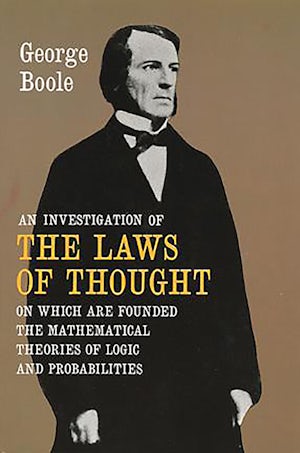
"A classic of pure mathematics and symbolic logic ... the publisher is to be thanked for making it available." — Scientific American
George Boole was on of the greatest mathematicians of the 19th century, and one of the most influential thinkers of all time. Not only did he make important contributions to differential equations and calculus of finite differences, he also was the discoverer of invariants, and the founder of modern symbolic logic. According to Bertrand Russell, "Pure mathematics was discovered by George Boole in his work published in 1854."
This work is the f... Read More
George Boole was on of the greatest mathematicians of the 19th century, and one of the most influential thinkers of all time. Not only did he make important contributions to differential equations and calculus of finite differences, he also was the discoverer of invariants, and the founder of modern symbolic logic. According to Bertrand Russell, "Pure mathematics was discovered by George Boole in his work published in 1854."
This work is the f... Read More
Format: eBook
"A classic of pure mathematics and symbolic logic ... the publisher is to be thanked for making it available." — Scientific American
George Boole was on of the greatest mathematicians of the 19th century, and one of the most influential thinkers of all time. Not only did he make important contributions to differential equations and calculus of finite differences, he also was the discoverer of invariants, and the founder of modern symbolic logic. According to Bertrand Russell, "Pure mathematics was discovered by George Boole in his work published in 1854."
This work is the f... Read More
George Boole was on of the greatest mathematicians of the 19th century, and one of the most influential thinkers of all time. Not only did he make important contributions to differential equations and calculus of finite differences, he also was the discoverer of invariants, and the founder of modern symbolic logic. According to Bertrand Russell, "Pure mathematics was discovered by George Boole in his work published in 1854."
This work is the f... Read More

